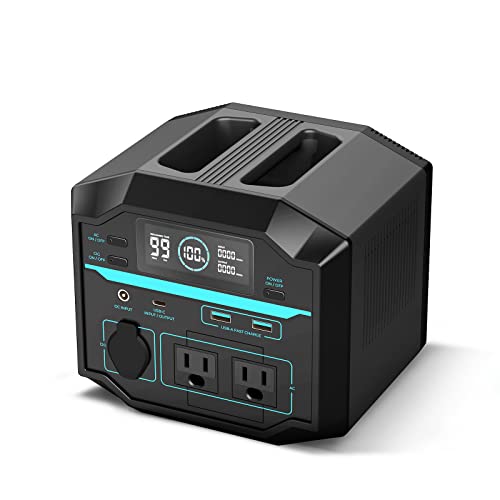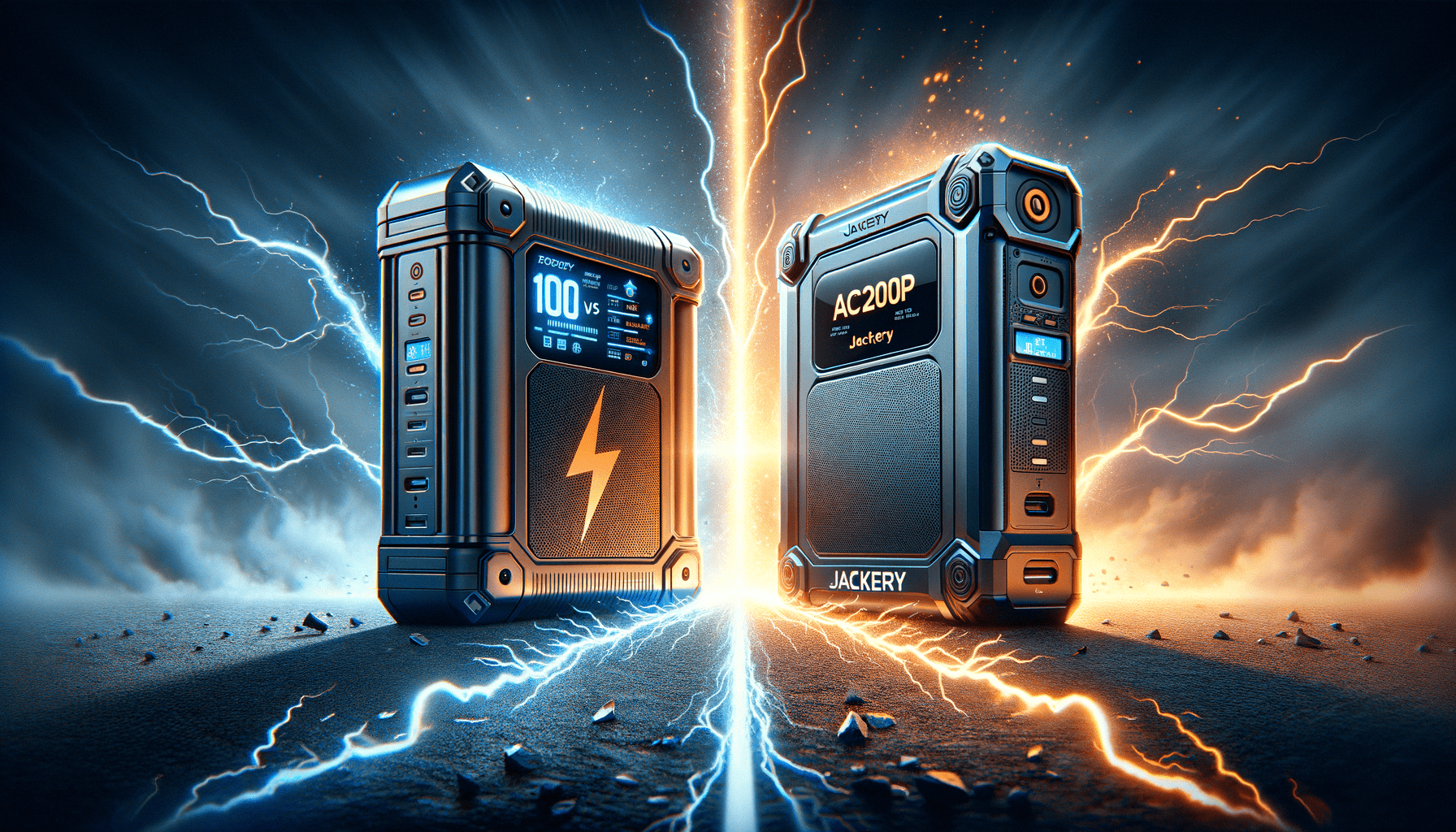In the search for portable power solutions, the Renogy 200 and the Jackery 240 stand out as two highly recommended options. Whether you’re planning a camping trip or preparing for emergency situations, these portable power stations can be your savior in times of need, offering a way to keep your devices charged without the need for traditional power sources. This article will delve into the technical specifics of each product to help you decide which one may be the ideal choice for your portable power needs.
Key Technical Specifications
| Renogy 200 (PHX200) | Jackery 240 | |
|---|---|---|
| Battery Capacity | 222Wh | 240Wh |
| Weight | 5.3 pounds | 6.6 pounds |
| Dimensions | 7.48 x 6.10 x 6.99 inches | 9.0 x 5.2 x 7.5 inches |
| AC Outlet | 200W with 400W surge | 200W with 400W surge |
| USB Ports | 2 USB-A, 1 USB-C | 2 USB-A |
| DC Output | 1 CIG Port | 1 Car Port |
| Charge Methods | AC Adapter, USB-C, Car, Solar (optional) | Wall Outlet, Car, Solar (optional) |
| LCD Display | Yes | No |
| Warranty | 1 year | 2 years + 1 year extended on official website |
| Special Features | Multi Intelligent BMS Protection | BMS with safety safeguards |

Comparison in Detail
Power Capacity and Charging Options
When considering power capacity, the Renogy 200 boasts a 222Wh battery, while the Jackery 240 edges it out slightly with a 240Wh battery. Both devices have an AC power inverter rated at 200W continuous output and capable of handling a 400W surge. This means they’re well-equipped to power small appliances and charge various devices. The Renogy shines with its multiple output options, which include both standard USB-A and a USB-C port. The Jackery keeps it to the basics with two USB-A ports and a separate DC car port for additional flexibility.
Portability and Design
Portability is a significant factor in choosing a power station. Both models prioritize lightweight and compact designs for ease of transport. The Renogy 200 weighs in at 5.3 pounds, which is lighter than the 6.6 pound Jackery 240. The dimensions of each unit reflect a commitment to a minimal footprint, essential for space-saving during travel or storage. The Renogy’s LCD display offers convenience by indicating the battery level and real-time input/output power, which is absent on the Jackery model.
Charging Methods and Speed
Charging your power station efficiently can be just as important as the charging it provides to your devices. The Renogy 200 can be rapidly recharged to 80% in just 1.5 hours, making it a winner for those who need a quick turn-around time. On the flip side, the Jackery 240 takes a more leisurely approach, requiring about 5.5 hours for a full charge via a wall outlet, while car charging takes approximately 6.5 hours. Both units are solar compatible, offering an eco-friendly charging option, though solar panels are sold separately.
Safety and Battery Management Systems (BMS)
Safety is paramount when dealing with lithium-ion batteries. Both devices incorporate a BMS to protect against issues like overvoltage and short circuits. Renogy’s Multi Intelligent BMS Protection includes an array of safeguards against temperature variations, overcurrent, and more. The Jackery’s BMS also ensures safe operation with controls for voltage, temperature, and overcurrent protection.
Warranty and Customer Support
Warranty coverage is an aspect that points to the confidence a manufacturer has in its product. Renogy offers a one-year warranty for the Renogy 200, while Jackery extends a standard two-year warranty, which can be extended by an additional year when purchased through the official website. This could make the Jackery more appealing for those who value long-term reliability and support.
Final Thoughts
Both the Renogy 200 and the Jackery 240 offer versatile and convenient power solutions for the outdoor enthusiast or those looking to add a layer of preparedness to their home. The choice between the two may come down to fast charging and weight, where Renogy 200 has the advantage, or warranty period and slightly higher capacity, which would favor the Jackery 240. Take into consideration your specific needs and usage patterns before making a decision. Whatever you choose, you’ll enjoy the freedom of portable power wherever your adventures may lead.



Leave a Reply